AJMF Puts Focus on Jewish Influence
The latest installment of the Atlanta Jewish Music Festival, its 10th season, kicks off March 7 with a weighty lineup of artists playing in venues around town.
Kevin Madigan is a senior reporter for the Atlanta Jewish Times.
The latest installment of the Atlanta Jewish Music Festival, its 10th season, kicks off March 7 with a weighty lineup of artists playing in venues around town. This one marks the debut of the fest’s new director, jazz musician Joe Alterman, who says he wants to highlight not just Jewish performers, but composers and lyricists as well.
“I came into this job trying to figure out what Jewish music is, and it occurred to me there is no one definition of it, so I’m choosing to define it as the cultural phenomenon that touches on every genre of music,” Alterman told the AJT.
“If you look at our lineup this year, it’s for music fans, but it’s really for people who are interested in American history; it covers the whole range of 20th century music and how Jews are involved in it.”
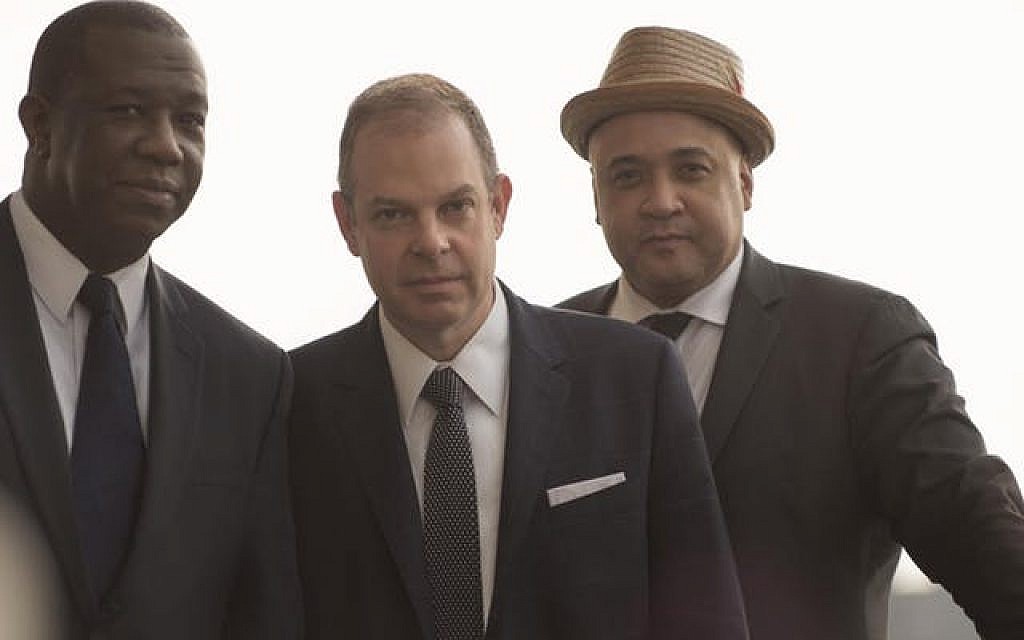
The Bill Charlap Trio
“Somewhere: The Songs of Leonard Bernstein,” Atlanta History Center on March 7, 7:30 p.m.
First up on the schedule is the Bill Charlap Trio – with bassist Peter Washington and drummer Kenny Washington – playing music from Leonard Bernstein’s vast repertoire. A jazz pianist from New York, Charlap began tickling the ivories at the tender age of 3, and he has been going strong ever since. His 2004 album of songs by Bernstein received a Grammy nomination and forms the basis of his AJMF appearance.
Charlap’s collaboration with Tony Bennett, “The Silver Lining: The Songs of Jerome Kern,” won a Grammy Award in 2016 for best traditional pop album. A Time magazine reviewer wrote that Charlap “approaches a song the way a lover approaches his beloved … he invariably zeroes in on its essence.”
Charlap, now 52, is married to Renee Rosnes, a well-known jazz pianist herself as well as composer, and the pair often works together. For the past 15 years he has been artistic director of New York City’s Jazz in July Festival and is currently the director of jazz studies at William Paterson University in Wayne, N.J.
In a conversation with Alterman about Bernstein, Charlap said, “There’s a sense of prayer. There’s a sense of expansiveness. There’s a talmudic type of knowledge, and a wit to anoint and lift and educate. He was, in a way, as famous an educator as he was a conductor or a composer or a pianist or a theater writer. I think he may have been maybe the greatest professor of music that we’ve ever had, and at the same time, one of the most charismatic performers all across the board.”

Lawrence
Vinyl at Center Stage, March 9 at 9 p.m.
A funky young band from New York called Lawrence will take the stage at Vinyl for a show that has been described as an extravaganza of soul, sound and sweet joy. Fronted by a pair of siblings, Clyde and Gracie Lawrence, the band includes a full horn section and uses “rich, nine-piece arrangements (that) pay tribute to Motown, Muscle Shoals, and everything in between,” according to Relix magazine. Asked about their upbringing, Clyde said, “We were listening to a lot of Stevie Wonder growing up, plus Motown, Beatles, Beach Boys and Randy Newman.”
The band is made up of old pals. “None of them was hired from professional relationships; they are all people from various points in our lives,” Clyde said. “One is a friend from childhood, another from middle school, the other four I met in college.”
The pair is also involved in films, with Clyde composing scores and Gracie as an actress. Both worked last year on the movie “Noelle,” filmed here in Georgia and starring Anna Kendrick and Shirley MacLaine, scheduled for release next Christmas.
Their new album “Living Room” has been well received at current gigs. “A great reaction,” Gracie said. “We put it out and immediately went on tour. That’s a pretty quick way to find out how people are responding to it, and the crowds were double the usual size in some places and seemed to be actively singing along. They knew the lyrics, but the album had only been out three days. … It was really crazy.”
An NPR review stated that “sonically, the album combines elements of Lawrence’s old and new influences by mixing live with electronic, analog with digital, and meticulousness with spontaneity.”
Bob Spiotto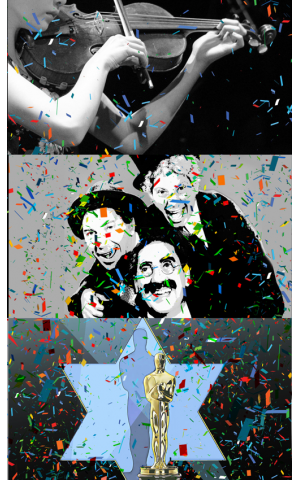
Salute To Hollywood: Jewish Contributions to Academy Awards Best Original Songs, The Breman Museum on March 10, 5 p.m.
Bob Spiotto has spent a lifetime in the arts in a variety of creative ways – singer, actor, performer, producer, administrator – but he seems to be ready for more. “I’ve worn so many unique hats over the years, and my head is still not tired out,” he told the AJT.
Spiotto is known for his one-man shows on Danny Kaye, Joel Grey, P.T. Barnum, Giuseppe Garibaldi, Primo Levi, Michelangelo, and Sholem Aleichem. In 2011, he directed the off-Broadway production of “Harry and Eddie: The Birth of Israel,” to good reviews. For 12 years he was program director at Hofstra University, and now holds a similar position at New York’s Friars Club.
“I’m always looking to expand those horizons and reinvent myself as often as I can.”
Case in point: Spiotto is putting together a show for AJMF that pays tribute to songs that won an Academy Award for best song, all with a Jewish connection. He will be accompanied by singer Deb Bowman and, on piano, AJMF director Joe Alterman, both Atlanta natives.
“We’re serving up approximately 30 songs, which is quite an undertaking. Obviously we are not doing every verse of every song, but the piece will evolve and develop chronologically from 1934 onwards,” Spiotto said. “There will be some wonderful narrative, Hollywood insight and anecdotes of how these songs came to be and what songs they were up against, with solos, duets, and instrumentals thrown in as well.”
He added, “So many have been by composers and lyricists of Jewish-American descent, which is an incredible musical heritage. Without them, there wouldn’t be too many songs left in that category.”
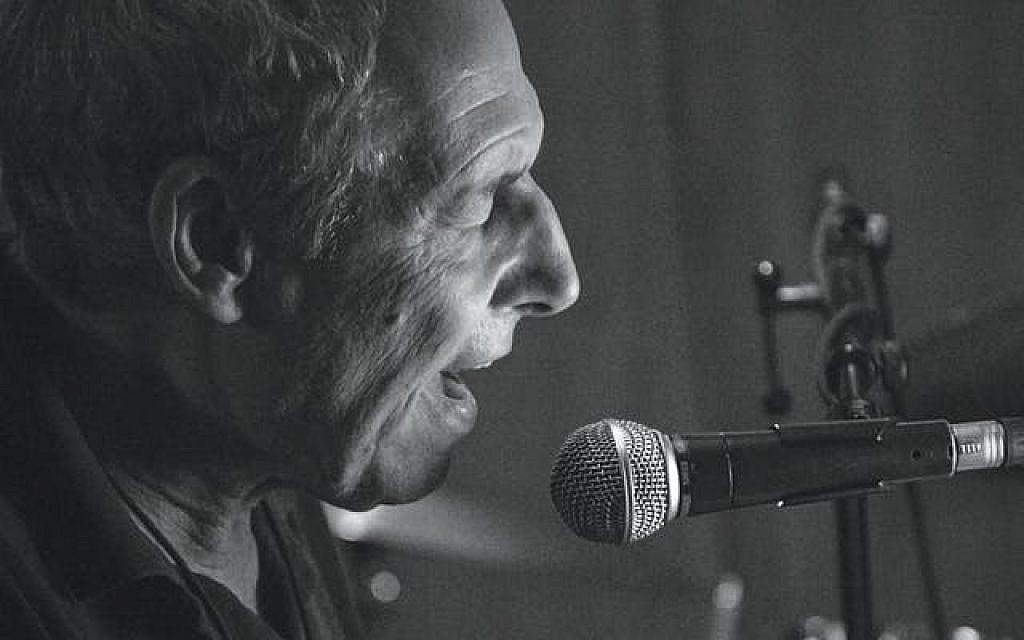
Ben Sidran
“There Was A Fire: Jews, Music and The American Dream,” Ahavath Achim Synagogue on March 14, 7:30 p.m.
“Ben Sidran is not only one of the most accomplished jazz and rock musicians/producers of our time. He is also one of the foremost experts on Jews and their contributions to popular American music – a subject that is deeply personal to him.” That’s according to Pamela Morton, director of the MJCCA Book Festival. Sidran appeared at her event in 2014 promoting his book on the topic which was nominated for a National Jewish Book Award after taking him a whole decade to write.
Sidran, 75, described that process in a statement to the AJMF: “Along the way I learned a lot, and in the end, I think I was able to unravel the mystery that is the interaction of popular music in America and the Jewish penchant for social justice, and also answer some key questions, like who is a Jew in America? What is Jewish about popular music in America? And what is the prognosis for the future?”
Born in Chicago, Sidran earned a doctorate in American Studies from Sussex University in England, his dissertation being a study of African-American music that was published in the book “Black Talk.” He calls himself a musician, author, scholar and producer. He has worked with Van Morrison, Rickie Lee Jones, Diana Ross, and Mose Allison, and for a time played keyboards in the Steve Miller Band.
His AJMF show, based on his book, will include songs, stories, history and philosophy, with references to Irving Berlin, Emma Lazarus, Dmitri Shostakovich, and Richard Rodgers, among others. He will also endeavor to explain how a group that rarely exceeds 2 percent of the U.S. population managed to contribute 80 percent of the American songbook.
Friday Night with Alan Light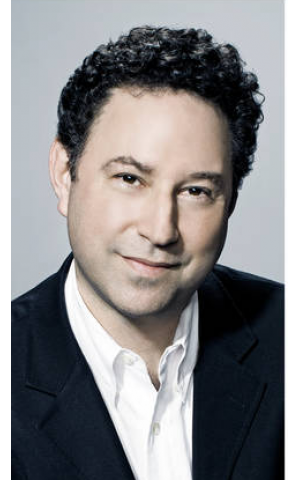
Jewish Contributions to American Music: Bob Dylan, Beastie Boys & Beyond, Temple Sinai on March 15, 6:30 p.m. service; 8:15 p.m. conversation
Continuing the AJMF theme of Jewish clout in contemporary American sound, journalist Alan Light will appear at Temple Sinai to discuss the role that Jewish artists and behind-the-scenes figures such as producers and executives have played in the development of pop music.
Light has had an extensive career in music journalism, having written for Rolling Stone magazine starting in 1990, and then as editor of Vibe, and later, Spin magazines. He served as a music correspondent on NPR, is a regular contributor to The New York Times, and is the author of half a dozen books on famous musicians.
“We’ll be talking about people I’ve written about extensively, like the Beastie Boys. I wrote a book on them and spent a lot of time with them,” Light said, “and I’ll be opening up the lens on (producer) Rick Rubin. At the other extreme, I wrote this book about Leonard Cohen (“The Holy or the Broken: Leonard Cohen, Jeff Buckley, and the Unlikely Ascent of ‘Hallelujah,’” 2012) so that’s another angle. I imagine we will be bridging across different styles and disciplines because there’s a lot of stuff I can talk about.”
The presentation will include plenty of songs, of course, and the presence of moderator Billy Planer. “He runs a summer program in Georgia for teenagers (Etgar 36) that my son went on a couple of years ago,” Light explained. “We spent a lot of time talking about music; we’ll have the advantage of hitting the ground running with a friendship in place that will let us get deeper into it.”
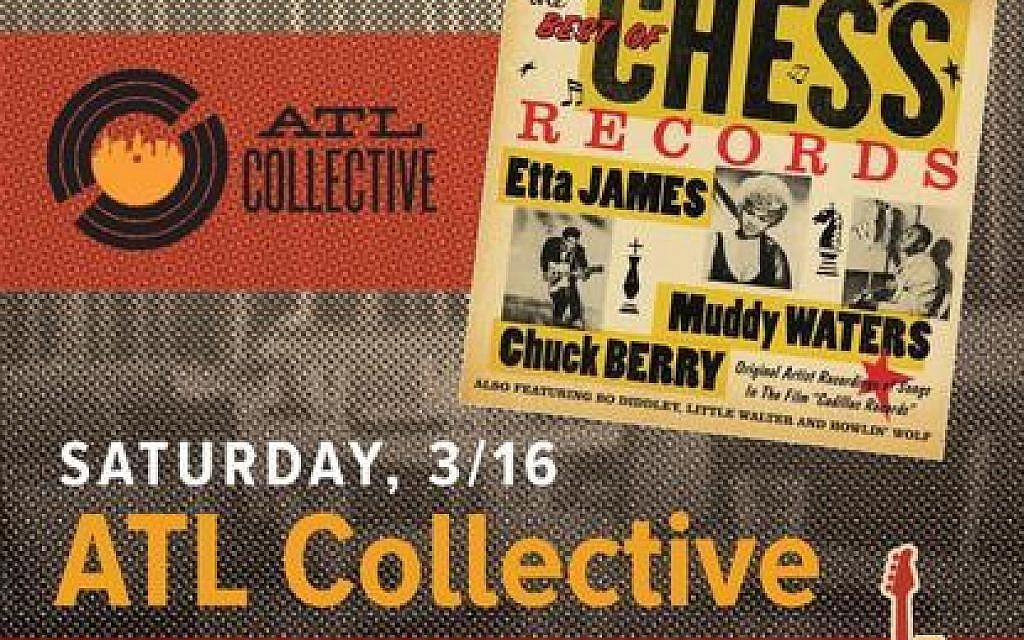
ATL Collective
Relives the Sounds of Chess Records, Venkman’s on March 16, 6 p.m. and 9:30 p.m.
ATL Collective is a local enterprise that puts on live shows of classic songs and albums played by an array of regional musicians, “recreating and celebrating the greats of the past,” according to an official statement.
The group is showing up once again at AJMF, this time covering music from the legendary Chess Records label, known for releasing time-honored songs in blues, soul, gospel and early rock.
Chess Records was founded by two brothers, Leonard and Phil Chess, in Chicago in the late 40s. They were Jewish immigrants from Poland who changed their last name, Czyż, on arrival in the U.S. The pair opened a liquor store on the south side of the city and, with the money they made, opened a small club with live acts. At the time, black musicians were seldom signed by record companies, so the Chess brothers decided to fill that void, and thus their label was born.
A then-unknown Muddy Waters scored the label’s first hit in 1948 with “I Can’t Be Satisfied,” a raw Southern blues number. Etta James, Willie Dixon, Chuck Berry, Bo Didley, and Howlin’ Wolf all eventually became part of Chess Records and vastly influenced much of subsequent rock and roll. The 1951 song “Rocket 88” by Ike Turner’s Kings of Rhythm and released by Chess is widely considered to be the first true rock and roll record.
“The Chess Records show is going to be cool,” said AJMF director Joe Alterman. “It’s the story that makes it Jewish, not the music necessarily. There’s a Jewish story to weave into it, and we will.”



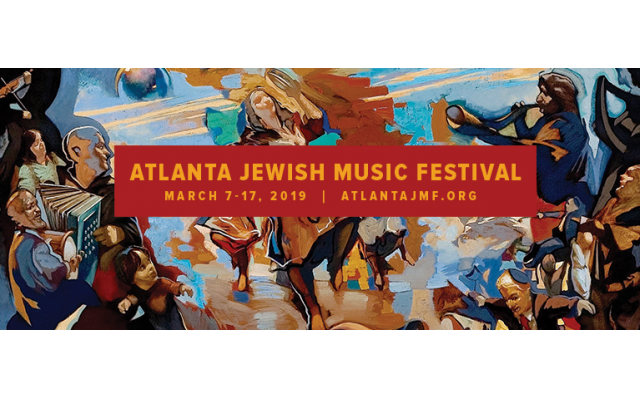
comments